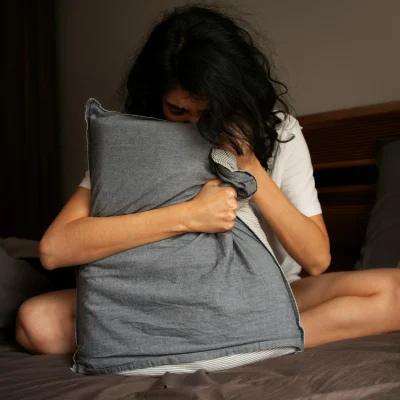Hi everyone!
Very often, people (or their doctors) look at BMI and assume that excess weight is solely due to fat. A diagnosis of obesity is made based on the number.
But that’s not entirely true.
In fact, there aren’t that many people carrying extreme amounts of body fat.
Think about it — if someone truly had massive fat deposits, they’d look tight and dense, like a seal or a fully inflated balloon. But most people with a high BMI appear soft, puffy, and bloated.
Why?
Poor diet, sedentary lifestyle, exposure to food and environmental toxins, and certain medications can poison the body, slow down metabolism, and disrupt natural drainage systems.
This means that the first few kilograms you lose are often not fat — they’re water. That’s why people are so thrilled when they initially see quick results on the scale.
The farther you go, the less water you’re carrying, and the more accurate the numbers become. But to start burning pure fat, your body will need specific conditions: a calculated caloric deficit, physical activity, and consistency. It’s hard work.
So, if your weight is high and refuses to budge — remember, something inside you is holding on to water. It’s not all fat — in fact, there’s often more fluid than fat.
Let’s talk about what causes this water retention and how to get rid of it naturally.
Why Water Retention Happens: 12 Common Causes
- Chronic inflammation
Where there’s inflammation, there’s swelling. This is your body’s natural defense response. It doesn’t just happen in injuries — it can occur in your organs, muscles, and even fat tissue.
→ Solution: Get blood work and identify inflammatory sources. If nothing obvious shows up — excess weight might be the trigger itself. - Thyroid dysfunction
A sluggish thyroid slows digestion and leads to unexplained weight gain — which is mostly water, not fat.
→ Solution: Support thyroid health and correct imbalances. If your medication isn’t working, seek a second opinion and adjust your lifestyle. - Sex hormone imbalance
An imbalance of estrogen and progesterone can lead to water retention. High prolactin also causes bloating and increased appetite.
→ Solution: Test your hormones and restore balance through diet, stress management, and medical support if needed. - High carb intake & elevated insulin
Chronically high insulin levels promote fluid retention. If you’re addicted to sweets or baked goods, you’ll likely struggle with swelling.
→ Solution: Get your insulin levels checked (more than once), reduce refined carbs, and focus on whole food sources. - Overtraining
Overworked, inflamed muscles and full glycogen stores trap water.
→ Solution: Allow proper rest and recovery between workouts. - Gut issues
Inflammation, bloating, and gas signal digestive imbalance — which leads to fluid retention.
→ Solution: Identify food sensitivities, simplify your diet, and restore gut health. You might lose 3–4 kg of water weight just from gut healing. - Lack of movement
Inactivity leads to high insulin, poor detox, weak lymph flow, and slow circulation — all contributing to swelling.
→ Solution: Move more throughout the day, even if it’s just walking or stretching. - Heart and circulatory issues
Poor circulation can impair lymph drainage and cause blood pooling in the veins.
→ Solution: Get your heart function assessed if you experience chronic swelling. - Kidney dysfunction
Your body’s filtration system must be working well. Even simple urine and blood tests can reveal problems.
→ Solution: Monitor kidney health and adjust lifestyle accordingly. - Protein deficiency
Protein helps regulate fluid balance. Low protein diets can lead to “protein edema” — swelling caused by low blood protein.
→ Solution: Ensure adequate protein intake based on your ideal body weight and health condition. - Excess salt & processed foods
Sodium is essential, but too much leads to fluid retention. Processed foods are loaded with hidden salt.
→ Solution: Only salt food with your own hand — avoid packaged meals, deli meats, sauces, and baked goods. - Medications
Some drugs contribute to water retention: NSAIDs, birth control pills, corticosteroids, and certain heart medications.
→ Solution: Review medications with your doctor if you’re experiencing unexplained swelling.
What to Do: Step-by-Step Action Plan

- Check key systems
Rule out or address issues with the kidneys, heart, thyroid, gut, and hormones. - Screen for metabolic syndrome
Look for signs like:- Large waistline & belly fat
- High blood pressure
- High insulin or blood sugar
- Elevated triglycerides
- Skin tags or keratosis
- Get proper blood work
Check: insulin, C-peptide, leptin, thyroid hormones, cortisol, sex hormones. - Increase physical activity
Aim for at least 1 hour of walking or swimming daily.
Moderate strength training 3 times a week is great — even with small weights at home. - Eat enough protein
- 1g per kg of ideal body weight for those with poor digestion.
- 1.5g is the golden middle ground.
- 2g for active individuals or athletes.
Talk to your doctor if you have conditions that limit protein intake.
- Eliminate junk foods
Remove: processed foods, sugar, baked goods, refined oils, deli meats, and store-bought sauces.
Cook with low temperatures using ghee, duck/chicken fat, avocado oil, or coconut oil. - Add fiber, but in moderation
Eat soups, stews, salads, legumes, and berries — but monitor digestion. If bloating or fermentation occurs, adjust portions. - Hydrate properly
Aim for 2 liters of clean water per day. Warm water helps with bile flow and kidney function. - Boost magnesium and potassium intake
Include: leafy greens, legumes, cocoa, dark chocolate, seeds, pumpkin, cruciferous vegetables, and avocado.
Natural Diuretic Foods & Herbs
(Avoid overuse if you have low blood pressure!)

- Parsley (brew it as a tea)
- Rosehip
- Cranberries and lingonberries
- Blackcurrant leaves
- Ivan tea
- Fennel seeds (brew at 80–90°C)
- Green tea
- Black tea
- Dandelion
- Hibiscus
- Hawthorn
- Juniper berries
- Asparagus
- Celery
- Pomegranate
- Lemons
- Bell pepper
- Onion
- Watermelon
- Garlic
- Cucumbers
- Ginger
- Coffee (in moderation)
- Caraway (black cumin)
- Coconut water
Final Thought
Products alone won’t fix chronic water retention. You need a systematic approach. And if nothing helps after a while — dig deeper. There’s likely a root cause that needs attention.
Fix the core problem, and the swelling — just like other symptoms — will fade away on its own.








